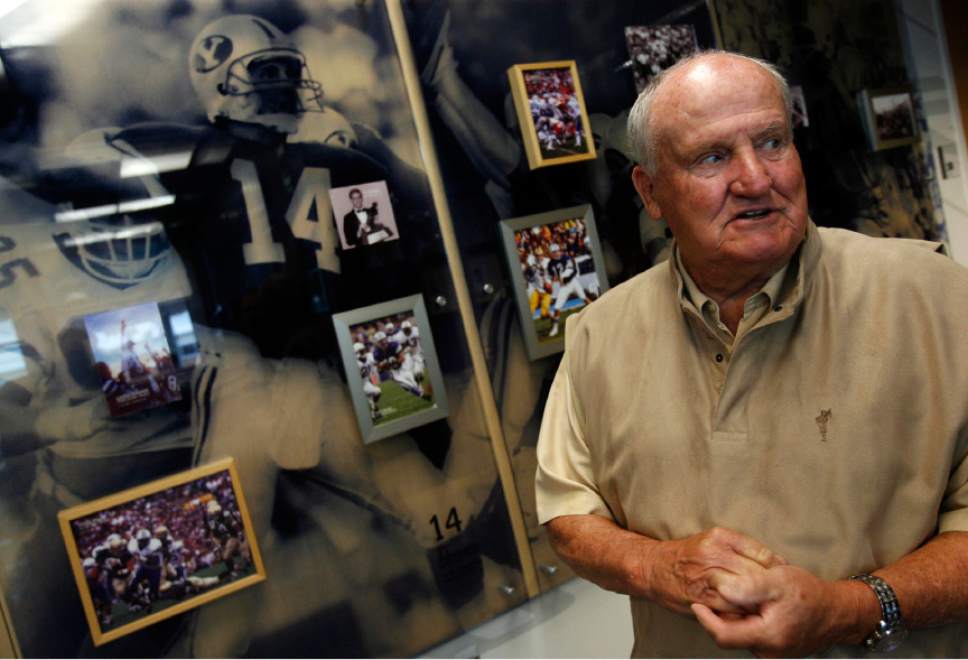This is an archived article that was published on sltrib.com in 2016, and information in the article may be outdated. It is provided only for personal research purposes and may not be reprinted.
The memory most Utahns have of LaVell Edwards may be the stony look on his face as he paced the sidelines of Brigham Young University football games. His team could be up 30 points or down 20, and Edwards would still wear the same furrowed brow.
That's how it was for 29 years. His consistency flowed from his even keel. Edwards changed the face of football in Utah without ever changing his own face.
As it turned out, Edwards, who died this week at 86, had an approach for managing the crushing stress and competition of college football, something he did better than virtually all of his coaching peers. He shared that approach with Tribune columnist Gordon Monson:
"Football has been important to me, but it's never been the most important thing."
The seventh-winningest coach in college football history wasn't completely obsessed with football?
No, and it was absolutely essential to his success. All that time he was directing the most innovative offense in football and turning his school into a quarterback factory, he also was raising children and philodendrons in his backyard. And there was no question which was the higher priority.
That sense of perspective also brought him another crucial quality: the confidence to delegate to good people and give them room to succeed. That innovative offense? It wasn't his idea, but it certainly wouldn't have happened without him.
In fact, BYU football as we know it wouldn't have happened without him. The team managed 173 wins in its 50 years before Edwards arrived. And then he added another 257.
Nowhere was the change more apparent than in the rivalry with the University of Utah, which wasn't even a rivalry before he showed up. BYU had only won five of their 46 meetings. But under Edwards, BYU was 22-7 against its rival one valley north, including a stretch between 1972 and 1992 when the Cougars won 19 of 21 meetings.
Self-deprecating and a reluctant celebrity, even as a Hall of Fame coach, Edwards could see everything without having to micromanage it. Unobstructed by ego, he coolly produced winning football teams — including a national championship in 1984 — without compromising his ideals or those of his school. His standard of excellence raised the bar for all college football in Utah.
The angels have him now, and they will lead him to the eternal bliss he so richly deserves. He may even crack a smile.



